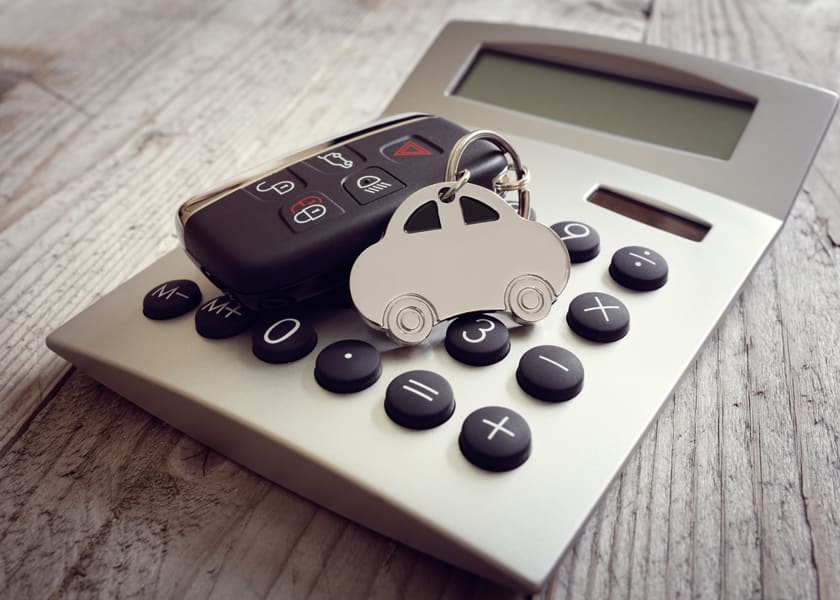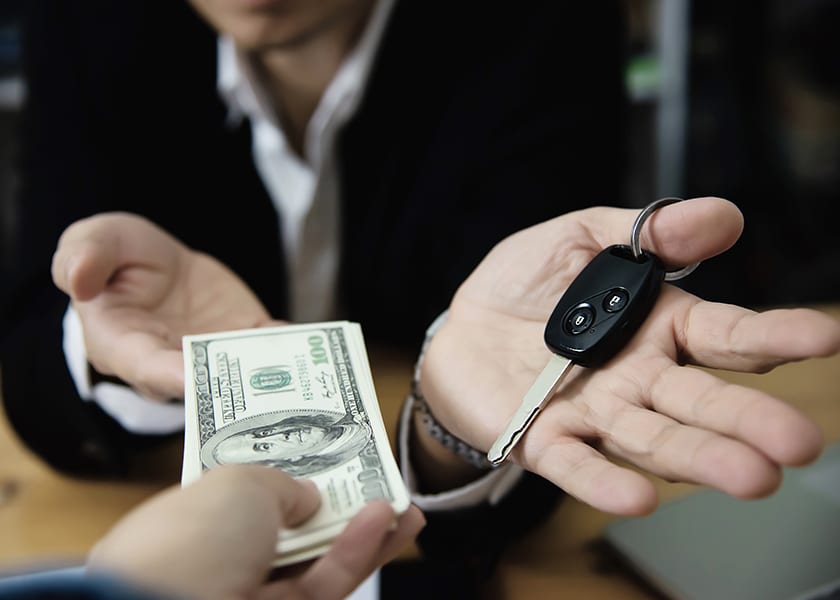Best Car Loan Provider
RateGenius 
Network of Over 150 Lenders
- APR's From 2.99%
- Loans Up To $100,000
- In Business Since 1999
- Average Savings $83/Month
When Shopping for Auto Loans
So if this is your first time financing a vehicle, be prepared for lots of legwork because there're tons of things that need to be considered before committing yourself into signing up for an auto loan. You wouldn't want any surprises at the end of the month when they send you the monthly statement so it's best if you do some figuring and planning ahead of time:
1. Figure out how much you can pay for your monthly payment.
This is just the most basic of basics. You won't get very far if you don't know how much you need to pay every month so it's crucial that you figure this out first before applying for any loan. How do I calculate my monthly payment?
2. Know what kind of car or truck you want and how much it will cost.
Before you even go near a dealer, take some time to learn about the different types of auto loans available in Canada and the average price range of different types of cars. Do your homework; it'll save you (or rather, save your wallet!) from all sorts of wasted time and energy when dealing with pushy sales reps.
3. Learn how to negotiate with car dealers.
Since you're about to purchase an item that costs more than $10,000, it's crucial that you know how to negotiate properly. This article on haggling will give you an idea of what to expect during your "bargaining" sessions with the sales reps so at least when they throw figures back and forth at each other, you won't be totally clueless about what's going on.
4. Find out what kind of interest rate you'll be paying.
Before even thinking of buying a vehicle or applying for any form of loan, find out first if this is one of those times when it would really pay off if you actually did some research beforehand. When you go and apply for a car loan, the bank or finance company will not only look at your credit score; they'll also run their own evaluation of what kind of risk you pose. Bottom line: if you have an excellent credit rating, expect better interest rates.
5. Figure out how long you're going to pay off your auto loan.
Short answer: usually somewhere between 48-72 months (4-6 years). It's possible that some banks might allow up to 96 months but most people find that this is just too long because by then you'll probably have abandoned the whole idea of ever owning an automobile again. When it comes to evaluating how much you can afford in terms of the monthly payment, have a 90% rule when planning out your budget.
In other words, if you're thinking of borrowing $20,000 (the tag price of a compact sedan like the Honda Civic), estimate that after factoring in interest rates and taxes, it'll probably cost you somewhere around $23-24k; this way when the time comes to finally pay off everything, you won't be caught off guard by how much your "final payment" is going to be.
6. If possible, finance only what you need.
If at all possible, avoid financing more than 80% of the price tag of your vehicle simply because there are already big incentives for doing so with some credit cards – not to mention that if ever something happens and you have no choice but to sell your car, you'll get more money if it's only financed for a small percentage. Before anything else, think of financing as an investment in your future.
7. Beware of balloon payments.
If you notice that the monthly payment plan includes some "balloon" payment every two or three years, steer clear because this is probably how finance companies make their profit – by selling cars at relatively low prices then making up the difference through interest rates on balloon payments. This article will give you more details about balloon payments and what to expect before signing up for one. There are also lots of different online calculators available where you can plug in some numbers to see exactly how much you might end up paying when all is said and done.
8. Do not co-sign for someone.
Very rarely will you find a bank or finance company that will accept a co-signer and even if they do, chances are your interest rates won't be as competitive because in essence, your debt will already be divided up between two different people. Just remember: borrowing money is about one person's responsibility; when you co-sign, suddenly it becomes two people's problem (and yours). It would also help to study this guide on how to get car insurance with bad credit before actually applying for any loan since after all, when you're dealing with big banks and finance companies, pretty much everything is done electronically these days. 9) If possible, pay off the whole thing in cash.
If you can, pay off the total amount you owe on your car loan in one fell swoop. This way, you get to save on interest rates plus whatever your lender might charge for paying off any remaining balance by check or through an automatic deduction from your bank account.
9. Remember that you have other options besides banks and finance companies.
A lot of people tend to ignore this but take it from me: there are actually lots of other ways how to find a good auto loan without really much hassle at all. The article will help explain further what these alternatives are so when the time comes that you're considering taking out a loan just be sure to do some extra research first before submitting any forms online or going down to your local credit union.
Conclusion
When it comes to shopping for an auto loan, there are a lot of things to consider. This in-depth article will help you understand what those things are and how to go about getting the best deal possible. We've outlined 9 tips that will help you get started, but remember that this is just a starting point. There are lots of different lenders out there who offer all sorts of different deals, so it's important to do your research before signing any paperwork.














